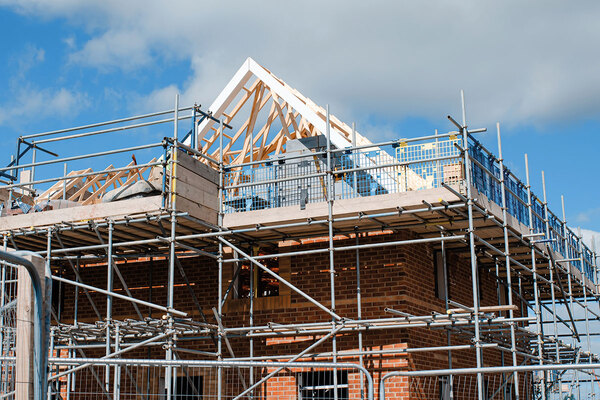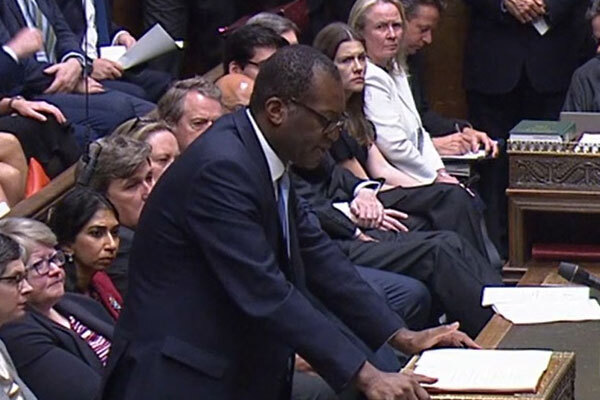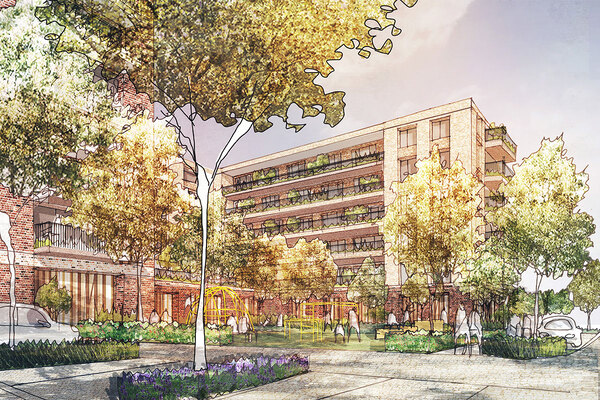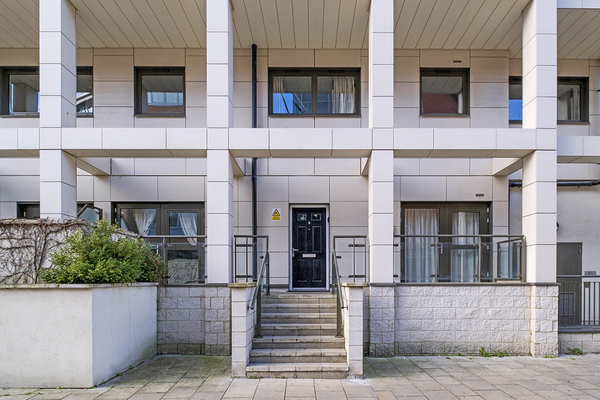You are viewing 1 of your 1 free articles
No-fault eviction ban and affordable housing face chop under new reforms, say reports
Ministers are drawing up plans to slash affordable-housing requirements and shelve a planned ban on no-fault evictions in a new set of reforms, reports say
According to The Times, Simon Clarke, the housing secretary, has written to prime minister Liz Truss, putting forward a series of measures and policies to boost housebuilding and fuel economic growth.
Under current planning rules, developers must include affordable housing in any scheme of more than 10 homes, but it is understood Mr Clarke now wants to hike this threshold up to 40 or even 50.
It revives a policy proposed two years ago by Boris Johnson, the prime minister at the time. It was ditched after analysis showed it would lead to 30,000 fewer homes being built over five years.
Other policies that do not “boost growth” could be put on the back burner, The Times reports, including a proposed ban on controversial no-fault evictions. This was a promise made in the Conservative Party’s 2019 manifesto.
The ban is not considered a “priority” now, according to the report, despite a surge in the number of renters being made homeless by landlords using Section 21 notices. According to recent government figures, nearly 20,000 households in England were made homeless this way in 2021/22, up from almost 9,000 the previous financial year.
The housing secretary is also set on unblocking the “perverse” planning backlog of around 100,000 homes caused by rules designed to stop the pollution of rivers and waterways.
In 2018, Natural England instructed some councils not to allow new developments that could lead to increased nutrients in nearby waterways, because rising levels were leading to a growth in deadly algae. Over the summer, this “nutrient neutrality” advice was expanded to 74 councils across the country, leading to moratoriums on new development.
Environmental groups welcomed the move to protect rivers from “ecosystem collapse”, but house builders have warned the rules are having a “huge impact” on their ability to deliver new housing. On the campaign trail, Ms Truss pledged to scrap the environmental protections, branding it “Brussels red tape”.
Mr Clarke is also reported to be looking at further loosening permitted development rights. The latest changes could include making it easier to convert commercial and agricultural properties into homes, as well as adding more floors to private homes.
The planning loophole, which removes the requirement to submit a full planning application, was expanded in 2021 and now applies to conversions of more building types, such as commercial buildings, shops, banks, gyms and restaurants.
However, the rules on converting office blocks into residential properties were tightened in 2020 after a series of controversies over tiny flats being squeezed into former office blocks. Under Robert Jenrick, the housing secretary at the time, minimum space standards were brought in, which required homes to have at least 37 square metres of floor space for a one-bedroom flat with a shower room.
Elsewhere, the government has also revealed plans for a series of “investment zones” across the country, where planning processes would be “streamlined” and businesses handed big tax breaks.
A government spokesperson said: “The government is committed to exploring policies that build the homes people need, deliver new jobs, support economic development and boost local economies.”
Sign up for our daily newsletter
Already have an account? Click here to manage your newsletters












